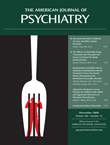A Randomized Trial of Dialectical Behavior Therapy Versus General Psychiatric Management for Borderline Personality Disorder
Abstract
Objective: The authors sought to evaluate the clinical efficacy of dialectical behavior therapy compared with general psychiatric management, including a combination of psychodynamically informed therapy and symptom-targeted medication management derived from specific recommendations in APA guidelines for borderline personality disorder. Method: This was a single-blind trial in which 180 patients diagnosed with borderline personality disorder who had at least two suicidal or nonsuicidal self-injurious episodes in the past 5 years were randomly assigned to receive 1 year of dialectical behavior therapy or general psychiatric management. The primary outcome measures, assessed at baseline and every 4 months over the treatment period, were frequency and severity of suicidal and nonsuicidal self-harm episodes. Results: Both groups showed improvement on the majority of clinical outcome measures after 1 year of treatment, including significant reductions in the frequency and severity of suicidal and nonsuicidal self-injurious episodes and significant improvements in most secondary clinical outcomes. Both groups had a reduction in general health care utilization, including emergency visits and psychiatric hospital days, as well as significant improvements in borderline personality disorder symptoms, symptom distress, depression, anger, and interpersonal functioning. No significant differences across any outcomes were found between groups. Conclusions: These results suggest that individuals with borderline personality disorder benefited equally from dialectical behavior therapy and a well-specified treatment delivered by psychiatrists with expertise in the treatment of borderline personality disorder.



